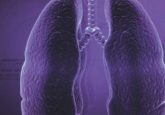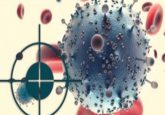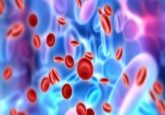Chemotherapy is not cardiotoxic for BRCA1/2 mutation breast cancer carriers

A study presented at the 2014 San Antonio Breast Cancer Symposium (9–13th December, TX, USA) by a research team from Georgetown University School of Medicine (DC, USA) has revealed that anthracycline-based chemotherapy has negligible cardiac toxicity in breast cancer patients carrying BRCA1/2 mutations.
Preclinical studies have previously shown that anthracycline-based chemotherapy can be cardiotoxic. In one study, mice with BRCA1/2 mutations in the heart exhibited increased susceptibility to heart damage. When these animals were treated with anthracyclines, reduced cardiac function and more frequent heart failure were observed compared with mice without the mutations.
The research team conducted the study based on this important evidence to evaluate whether findings in the preclinical setting could be a valid concern for every day patients within the clinical setting, as women with breast cancer who are BRCA1/2 mutation carriers often require treatment with anthracyclines.
Eighty one participants took part in the study, 39 BRCA1/2 mutation carriers and 42 patients without the mutation. Women with metastatic disease and HER2-positive breast cancer were not included. The analysis also excluded patients who had history of hypertension because of its confounding effect on myocardial strain.
Each participant received an echocardiogram on average 45 months after anthracycline treatment. The study used two measures to determine heart function: left ventricular ejection fraction (LVEF), which is the percentage of blood that leaves the heart after each contraction, and global longitudinal strain (GLS), a global measure of cardiac function.
Ninety one percent of women demonstrated normal LVEF and 85% demonstrated normal GLS. LVEF was borderline reduced in one mutation carrier, indicating that the heart pumped a fraction of less blood than normal. In six nonmutation carriers LVEF was borderline or mildly reduced. Reduced GLS was present in four mutation carriers and seven nonmutation carriers.
Ana Barac, an assistant professor of medicine at Georgetown University School of Medicine and the study’s principal investigator, commented: “We found that mutation carriers who received anthracycline treatment do not have an increased risk of cardiac dysfunction, and that reduced cardiac function was very low in all patients, suggesting low risk of cardiac problems late after chemotherapy treatment. Our results are applicable only to patients without significant cardiovascular risk factors, particularly hypertension.”
The study’s co-investigator Filipa Lynce, an oncologist with MedStar Georgetown University Hospital continued: “Overall this is great news for our patients with BRCA mutations. Our results provide reassurance that these patients do not appear to have increased heart toxicity when compared with non-mutation carriers.”





